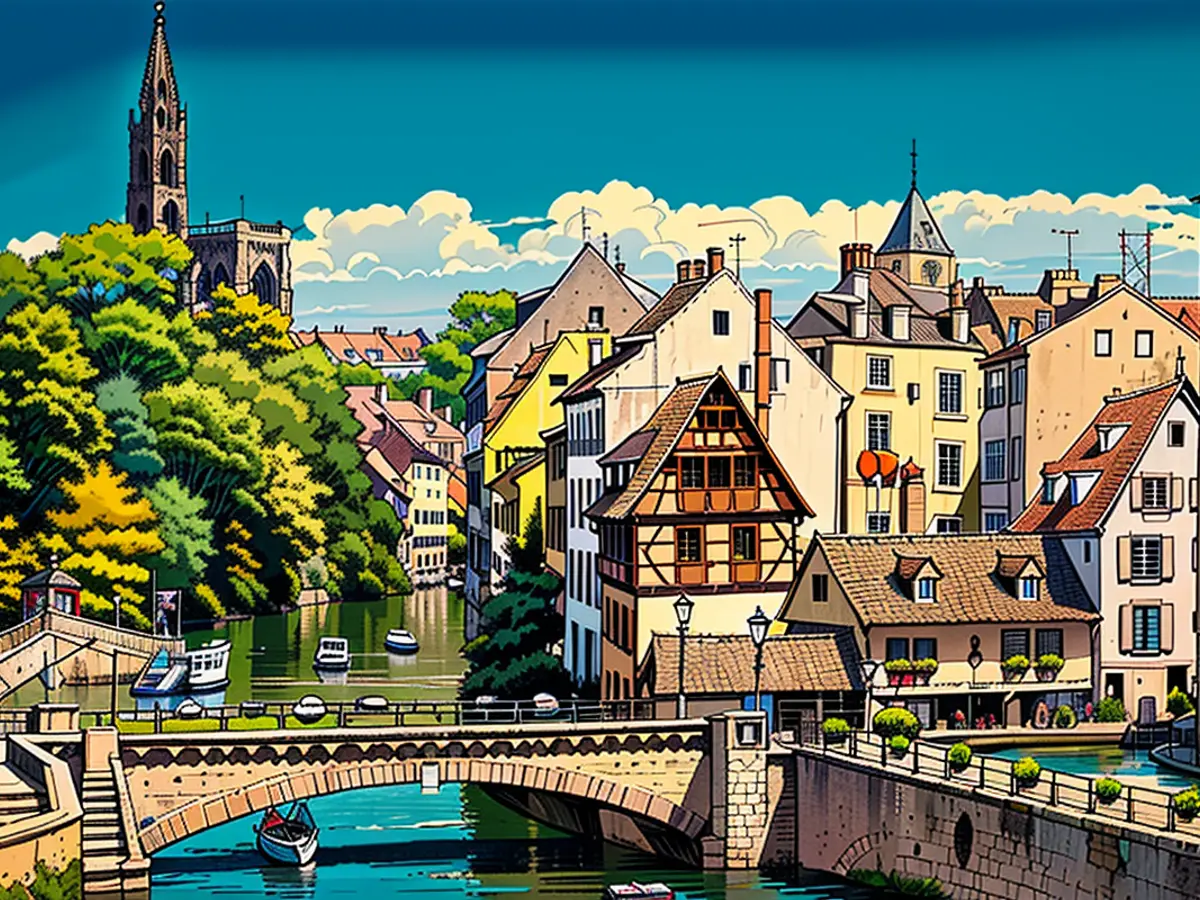Pension abroad - Savoir-vivre: What attracts many retired Germans to France
Germany's diverse climate, from Mediterranean summers in the south to mild winters in the west, makes it an attractive retirement destination. This is evident in the numbers: The German Pension Insurance (DRV) paid out over 230,000 pensions to German insured persons living abroad in 2022 – approximately 17,000 of them went to France. France thus ranks fourth among the top destinations for German seniors to retire, just behind Austria, Switzerland, and Spain.
France also attracts German senior citizens through its proximity to Germany. For example, Alsace is particularly popular among German retirees not only because of its timber-framed houses, Flammkuchen, and wine growing, but also because of the widespread German language, which simplifies life for expats.
Language Skills in Everyday Life
Seniors planning to move further into the country should learn French to understand everyday life. According to a survey by the French market research institute "Institut français d'opinion publique" (IFOP) from 2018, around four percent of the interviewees stated that they speak fluent German, while approximately 27 percent indicated that they can understand some German. However, those who want to participate sovereignly in administrative procedures and social life should be proficient in neither German nor English.
For Germans moving to France, the situation has generally become easier since 2016. A supplementary agreement to existing agreements simplifies the situation for pensioners. They now only need to pay taxes on their state pension income in the country where their primary residence is registered. Other income from Germany, such as rental income, remains taxable in Germany. For questions related to pension payments in France, contact the German Pension Insurance (DRV) in Rhineland-Palatinate.
Regional Differences in Real Estate Prices
On average, real estate prices in France are similar to those in the Federal Republic. Therefore, those who want to buy real estate in the neighboring country should be able to do so with a similar budget as in Germany: According to the real estate broker Engel & Völkers, a dwelling in Germany costs on average around 3270 Euro per square meter, while a house costs approximately 2610 Euro. According to the French real estate portal Seloger, the average purchase prices for apartments are around 3840 Euro per square meter, while a house costs an average of 2480 Euro per square meter.
However, there are significant price differences regionally – similar to Germany. The most expensive real estate is found in the metropolis of Paris, with an average of up to 10,000 Euro per square meter. Real estate in Alsace is more affordable, with an average house costing approximately 2481 Euro and an apartment approximately 3839 Euro per square meter.
In spite of the similarities, there are – as little surprising – also differences. Someone buying a house in France should consider notary fees and land transfer taxes. According to statements from the French Ministry of Economy and Finance, buyers of used properties must pay seven to eight percent of the purchase price as additional costs. Therefore, someone buying an immovable property worth 300,000 Euro must reckon with additional purchase costs of approximately 22,000 Euro. For new properties, buyers pay only two to three percent, as the land transfer tax and cadastral tax are significantly lower.
When buying an object, all documents are naturally in French language and French law applies. Therefore, it is advisable to be aware of the legal differences – and to find a French notary who has experience with German buyers, if necessary, who even speaks German. "French notaries often assume that everyone knows the procedures", says Françoise Berton, managing director of the German-French law firm Berton & Associes.
A procedure that German buyers often misunderstand is the so-called preliminary contract, which the notary sets up. The name suggests that the buyer still has time to consider his decision. However, in France, a preliminary contract is already binding. Someone who has signed it has only a period of ten days to withdraw from the preliminary contract.
Someone who wants to rent in France must, on average, pay more money than for an average German rent. While the average rent per square meter nationwide in Germany, according to current data from Engel & Völkers, is 11 Euro, the average rent in France, according to real estate portals, is currently around 13 Euro. However, there are also significant regional differences. Someone who decides for rural life in France will find cheaper rent prices there. Outside the cities, the number of those who speak German or other foreign languages disproportionately decreases – just like in Germany. The saved budget is then likely to be well invested in language courses.
German retirees frequently choose France as their retirement destination due to its proximity and the ease of living for expats, with Alsace being particularly popular. In 2022, France received around 17,000 pensions from the German Pension Insurance (DRV) for its German senior citizen residents. To fully participate in French administrative procedures and social life, seniors planning to move further into the country should learn French, as many only understand some German. For German pensioners residing in France, there has been a simplification of tax requirements since 2016, allowing them to pay taxes on their state pension income in the country where they are primary residents.








